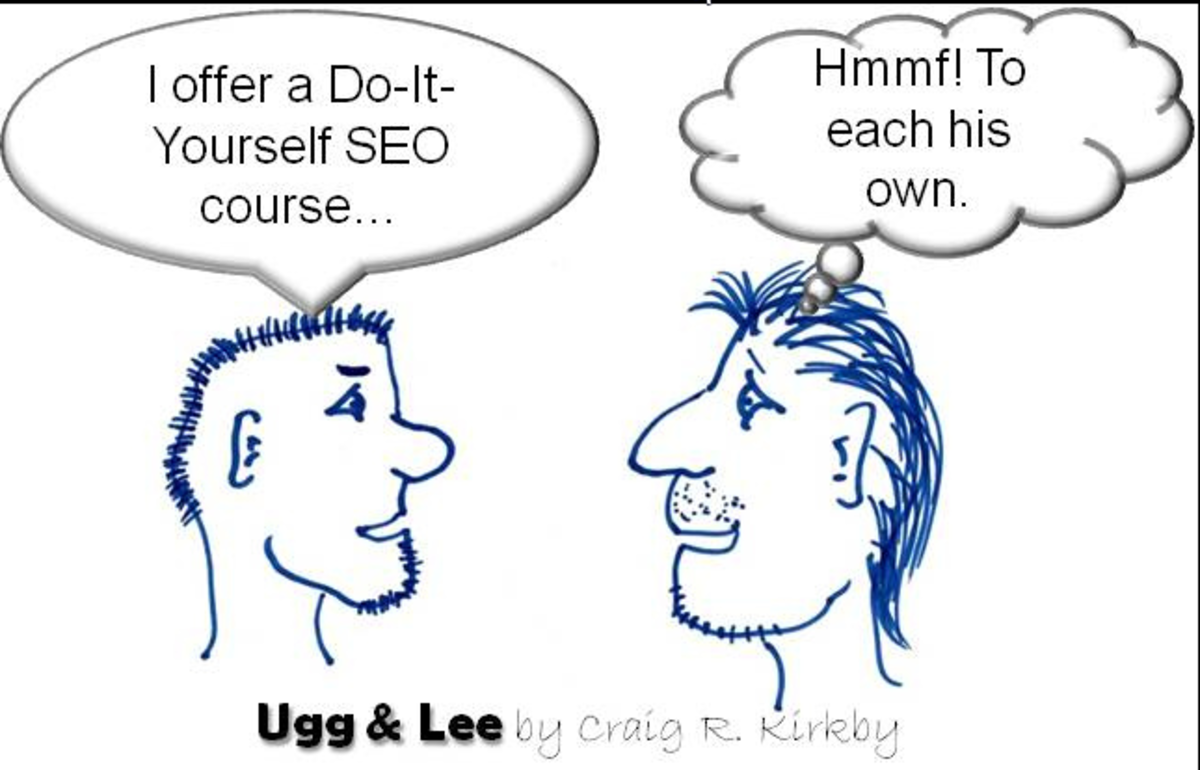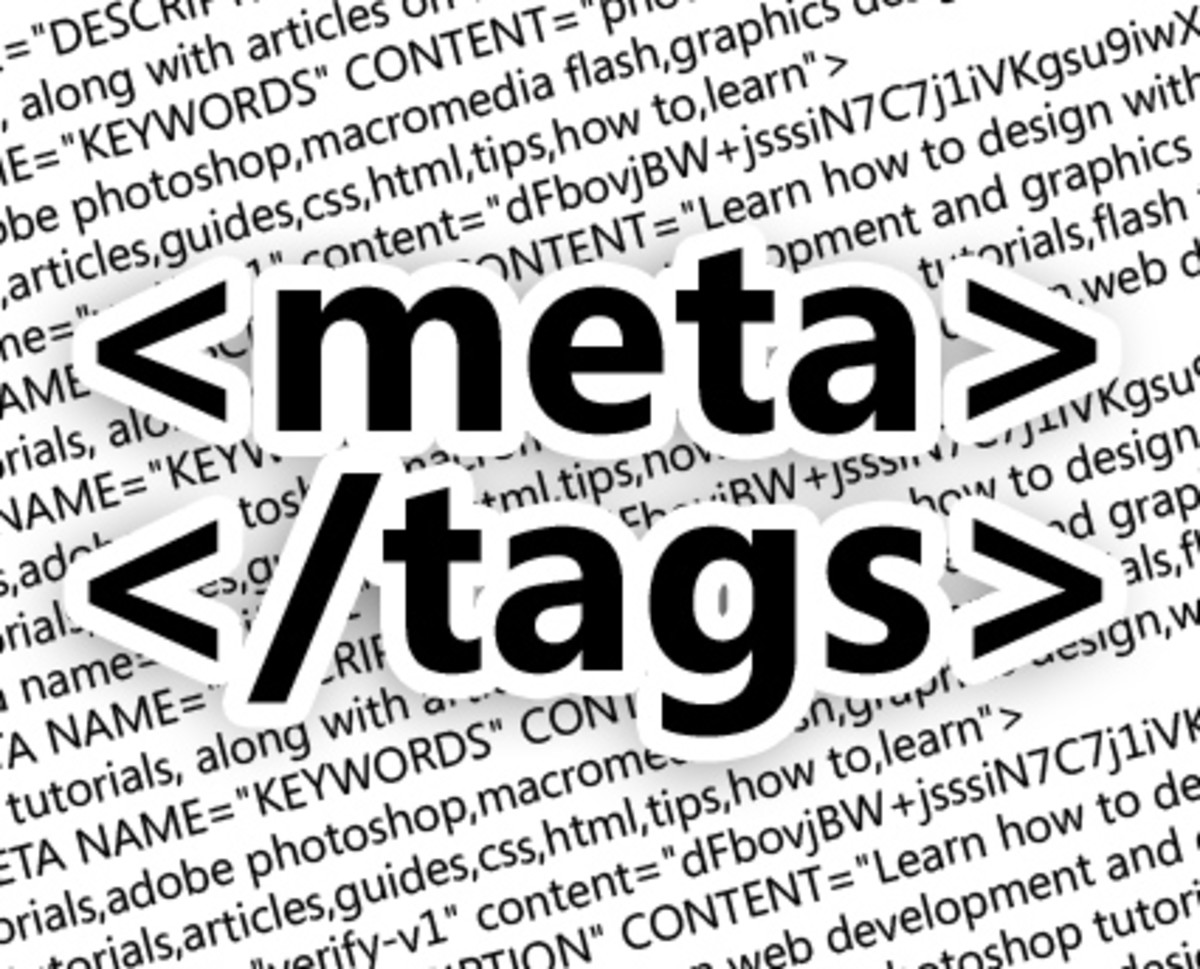SEO Quake for Mac - Installation and Usage
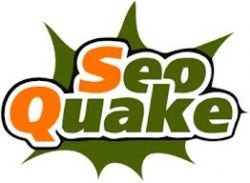
What is SEO Quake for Mac?
SEO Quake for Mac is a superb, free toolbar for search engine optimization. It will give you a wide variety of SEO parameters for any page you visit and will even give you a site analysis to see where you can improve the SEO of your own site or any other. It is available for Firefox, Opera (beta), chrome and Safari (beta).
Great SEO Training Material on Amazon

Using SEO Quake for Mac to Gauge Link Popularity
PageRank And Link Popularity Are Two Different Beasts
It's important to realize that the two big "P's" - popularity and PageRank - are not at all the same thing.
Unfortunately, in the field of search engine optimization, PageRank and link popularity are often confused with one another. PageRank focuses on the quantity of sites linking to you and the authority of those sites. Link popularity, on the other hand, refers to the number of links. The two terms are not interchangeable; in fact, link popularity is actually a part of PageRank.
The major search engines do take link popularity into account in one way or another. The types of links that best boost your site's image of authority those in the appropriate categories in major Internet directories and those from sites that are similar to yours and are focused on the same keyword phrases. These are considered to be highly relevant, and in some cases, high quality sites.
Links from sites that the search engines may deem to be low quality, such as free-for-all sites, are one of the best ways to sabotage your sites positioning. You'd best stay away from them.
Stay away in particular from those services that claim to blast your site out to thousands of targeted sites which will likely end up lowering your site's popularity on the search engines.
This is known as "link farming" and, although it might give you a brief and illusory boost in rankings, in the long run it is likely only to sabotage your link popularity. it's not worth the risk. Your site's link popularity is most crucial for success so you do not want to do anything to risk sabotaging it.
The natural methods of building link popularity and one way backlinks, such as guest blogging and building relationships with other webmasters, are usually the best and most effective.
Want to know your site's PageRank and link popularity? SEOquake for Firefox, Chrome, Opera and Apple's Safari browser (beta) provides information on PageRank, Google index, Alexa, keyword density and internal/external links. It can also highlight noffolow links (see above image).
If you do this consistently, your site's authority and popularity will build over time. Offering good quality content on your site or a product or service that is reasonable and provides value won't hurt, either!
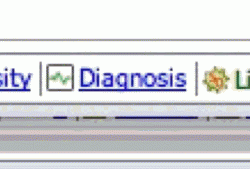
SEO Quake for Mac Keyword Diagnosis
SEO - Why You Should Avoid Keyword Flooding
Keyword flooding is a term that refers to the attempt to jam as many keywords onto your homepage as possible. This includes placing too many keywords into the title tag.
Using more than twelve keywords in this tag is likely to be too many, but some webmasters unknowingly try to jam up to 100 keywords in the assumption that “more is better.”
The problem with jamming too many keywords into either the meta-tags or the text of the page itself is that you run the risk of encompassing too broad a theme for the search engines to be able to identify the specific topic of your site. In order to rank a site highly, the search engine spiders must be able to latch onto a specific keyword density or number of repetitions.
For the most successful SEO results, you should focus on a short, sweet and targeted list of keywords for any particular page, including or especially your homepage. If you load any page up with too many of the most visited, generic or popular terms, you will likely only receive untargeted results as well as visitors who are not interested in buying anything anyway.
What you want to do is target the content on your homepage to three to five of your top keywords or phrases. For example, if you have a site about iPad cases, don't use words like “iPad” or “iPad cases.” Instead, find some phrases that are less general such as “leather iPad cases” or “waterproof iPad cases” to attract the attention of the most targeted visitors.
As a general rule of thumb, the more competitive the subject of your site, the fewer keywords you should choose. Choose only two or three of the top keywords and try to use them at least once per paragraph, or two or three times in each larger block of text (but avoid overuse, which can impair readability). Keep your title to under seven words (five words is even better).
SEOquake, a popular plugin for Firefox, Chrome, Opera and Safari browsers, will tell you if you have too many keywords in your meta tags as well as provide other SEO advice. After installing the plugin, visit your site and click on the toolbar’s Diagnosis link (see image).
In addition, the plugin provides information on any site for Google and Alexa pagerank as well as Keyword Density. SEOquake can also highlight no-follow links.
SEOquake Preferences - General
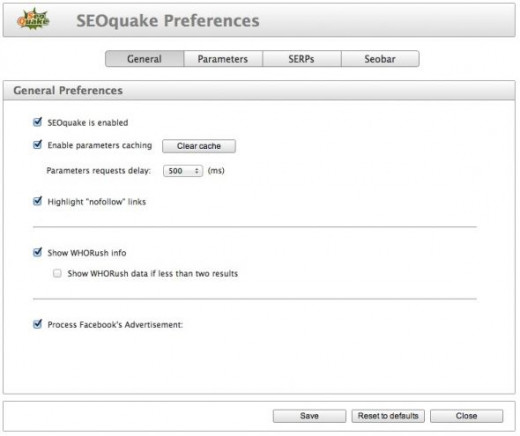
This preference pane has options to enable and disable SCO quake, enable and disable parameters caching, highlight "no follow links, show WHORush info, and process Facebook's advertisement.
SEOquake Preferences - Parameters
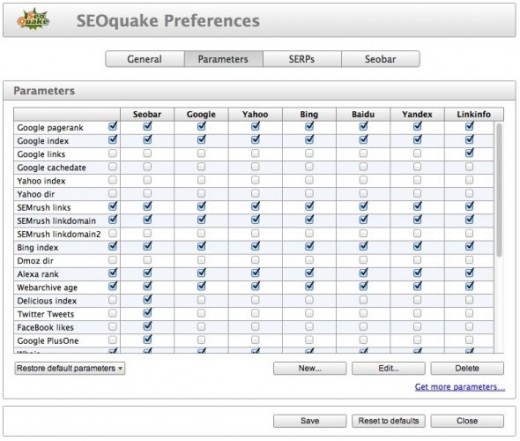
This preference pane allows you to enable or disable a wide range of parameters for SCO bar, Google, Yahoo, Bing, Baidu, Yandex and Linkinfo.
SEOquake Preferences - SERPs
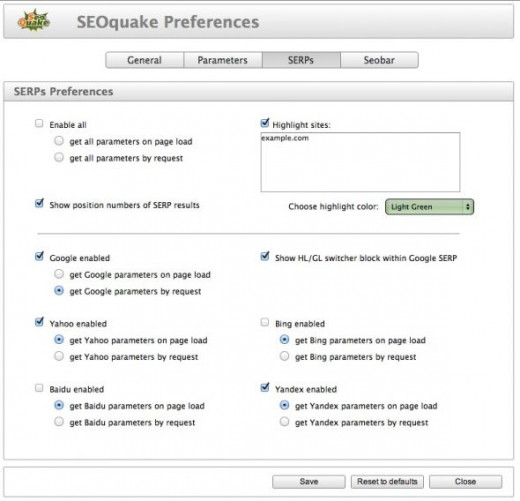
This preference pane allows you to enable and disable all and enable Google, Yahoo, Baidu, Bing and Yandex.
SEOquake Preferences - Seobar
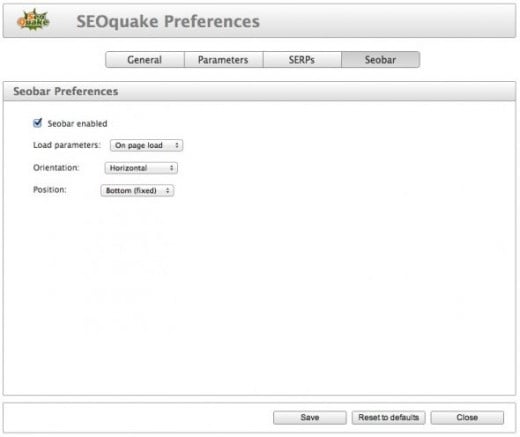
This preference pane allows you to enable and disable SCO quake, to determine when it loads its parameters and to set the orientation and position. I prefer to have it load on the bottom of the page since it seems to be more out-of-the-way that way. I also prefer to have it load only upon request, otherwise, it will appear on the page when printing or saving a webpage as a PDF file.


